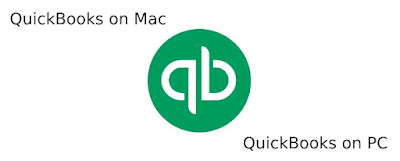Are you overwhelmed with managing your business's finances? Looking for the perfect accounting software that will streamline your processes and make your life easier? Well, look no further! In this in-depth comparison, we'll be exploring two popular options - Drake Accounting vs QuickBooks - to help you decide which one is right for your business. Whether you're a small business owner or a freelancer, understanding the features, benefits, and pricing of these accounting solutions will empower you to make an informed decision. So let's dive in and discover how Drake Accounting stacks up against QuickBooks!
Comparing Of Drake Accounting Vs QuickBooks
When it comes to comparing Drake Accounting vs QuickBooks, there are several factors to consider. Let's talk about the user interface. QuickBooks is known for its intuitive and user-friendly interface that makes navigation a breeze. On the other hand, Drake Accounting may require a bit more time to get used to due to its slightly complex layout.
In terms of features, both software offer a wide range of functionalities. QuickBooks provides comprehensive tools for invoicing, expense tracking, payroll management, and inventory tracking. It also integrates seamlessly with various third-party apps and offers robust reporting options.
On the other hand, Drake Accounting focuses on providing advanced tax preparation capabilities with features like e-filing options and tax form templates. This makes it an ideal choice for businesses that prioritize tax-related tasks.
When it comes to customer support, both platforms offer assistance via phone or email. However, some users have reported better responsiveness from QuickBooks' support team compared to Drake Accounting.
Choosing between Drake Accounting and QuickBooks depends on your business's specific needs and preferences. While QuickBooks excels in overall functionality and ease of use, if you're primarily focused on tax-related tasks or have specific requirements related to tax preparation software,
Now that we've explored the comparison between these two accounting solutions in terms of their user interface, features, and customer support, let's move on to discussing the benefits they offer!
Features of Drake Accounting vs QuickBooks
When it comes to comparing the features of Drake Accounting and QuickBooks, there are several key aspects that business owners should consider. Both software options offer a range of functionalities designed to streamline financial management processes, but they have their own unique strengths.
Drake Accounting is known for its robust tax preparation capabilities. With this software, users can easily prepare tax returns for individuals, businesses, estates, and trusts. It offers comprehensive e-filing options and integrates seamlessly with other Drake Software products.
On the other hand, QuickBooks is widely recognized as a versatile accounting solution suitable for small to medium-sized businesses. It provides tools for managing invoices, expenses, payroll processing, inventory tracking, and more. Additionally, QuickBooks offers integrations with various third-party applications to enhance functionality further.
While both platforms offer similar core features such as general ledger management and financial reporting capabilities, they differ in terms of their focus areas. Drake Accounting excels in tax-related tasks while QuickBooks shines in overall business financial management.
Whether you choose Drake Accounting or QuickBooks ultimately depends on your specific needs as a business owner. Consider factors like the complexity of your tax requirements and the extent of additional functionalities you require beyond basic accounting tasks.
Note, carefully assessing the features offered by each platform will help guide your decision-making process when choosing between Drake Accounting and QuickBooks for your business's financial management needs.
Benefits of Drake Accounting vs QuickBooks
When it comes to managing the financial aspects of your business, having the right accounting software is crucial. Two popular options that often come up in discussions are Drake Accounting and QuickBooks. Both have their own set of benefits, so let's take a closer look.
First off, one major benefit of using Drake Accounting is its robust features for tax preparation. The software is designed specifically for accountants and tax professionals, offering advanced tools and resources to handle complex tax calculations efficiently. With Drake Accounting, you can easily navigate through various tax forms, automate data entry, and generate accurate reports.
On the other hand, QuickBooks stands out with its user-friendly interface and accessibility. It caters to small businesses by providing simplified bookkeeping solutions that even non-accountants can understand and manage effectively. With features like invoicing, expense tracking, payroll management, and inventory tracking all in one place, QuickBooks streamlines your day-to-day financial tasks.
Both platforms offer cloud-based options which allow you to access your financial data from anywhere at any time. This flexibility is especially beneficial for businesses with multiple locations or remote teams as it ensures everyone has real-time access to important information.
Drake Accounting excels in terms of scalability since it offers customizable options based on your specific needs. Whether you're a sole proprietor or running a large corporation with multiple entities or branches, Drake Accounting can accommodate your requirements without compromising performance.
QuickBooks also provides scalability but leans more towards catering to smaller businesses rather than larger enterprises. However, it does offer add-ons that extend functionality if needed.
Furthermore, both platforms provide excellent customer support services. Drake Software offers year-round technical assistance via phone or email while Intuit (the company behind QuickBooks) provides extensive online help resources along with 24/7 chat support. This means no matter which software you choose, you can expect prompt assistance when facing any issues or questions.] Both Drake Accounting and QuickBooks offer unique benefits depending on your business's needs. Drake Accounting is ideal for tax professionals and larger organizations, while QuickBooks is perfect for small businesses and non-accountants. Ultimately, the best option for you will depend on your specific requirements and the size of your business.
Pricing of Drake Accounting vs QuickBooks
Pricing is an important factor when choosing any software for your business, and Drake Accounting and QuickBooks are no exception. Let's take a closer look at the pricing options available for both.
Drake Accounting offers a flexible pricing structure that caters to businesses of all sizes. They have three main packages: Basic, Professional, and Enterprise. The basic package starts one year and includes features like unlimited federal e-filing and 50 state returns. The Professional package offers additional features such as year and integrated PDF printer and document management. For larger businesses with more complex requirements, the Enterprise package is available upon request.
On the other hand, QuickBooks also offers different pricing plans to suit different business needs. Their offerings include Simple Start, Essentials, Plus, Advanced, Self-Employed (for freelancers), as well as industry-specific editions such as QuickBooks Online Accountant or QuickBooks Desktop Premier Accountant. Price month for simple month for advanced.
When comparing Drake Accounting vs QuickBooks prices, it's important to consider not only the cost but what each software offers in terms of functionality and support. You'll want to choose the option that best matches your specific business needs while also fitting into your budget.
Keep in mind that these prices may vary depending on factors like additional services or add-ons you require. It is always advisable to reach out to their sales teams directly or visit their respective websites for the latest information on pricing options.
Finally, price point should not be the only determining
factor when choosing between Drake Accounting vs. QuickBooks. Consider
comprehensively evaluating each platform's features as well as its
cost-effectiveness before deciding which suits your specific business needs!
Learn about one of
them, QuickBooks
Payroll vs. Paychex, to learn more.
Which One Is Right For Your Business?
When it comes to choosing the right accounting software for your business, it's important to consider your specific needs and requirements. Both Drake Accounting and QuickBooks are popular options with their own unique features and benefits.
Drake Accounting offers a comprehensive set of tools that cater specifically to professional tax preparers. With its user-friendly interface and advanced tax planning capabilities, it is an excellent choice for businesses in the accounting industry.
On the other hand, QuickBooks is a versatile accounting software that caters to a wide range of businesses across various industries. It offers robust bookkeeping functionalities along with features like invoicing, inventory management, and payroll processing.
To determine which one is right for your business, you need to assess factors such as the size of your business, industry-specific requirements, scalability needs, budget constraints, and level of expertise in using accounting software.
If you are primarily focused on tax preparation services or operate within the accounting industry on a larger scale, Drake Accounting may be the better fit for you. However, if you require more diverse functionality beyond just tax preparation or have a smaller-sized business with simpler bookkeeping needs then QuickBooks might be more suitable.
It's crucial to thoroughly evaluate both platforms based on your unique business needs before making a decision. Consider factors like ease-of-use, integration capabilities with other tools or systems already in use at your company (such as CRM or project management), customer support availability and pricing plans when comparing these two solutions side by side.
Remember that selecting the right accounting software can greatly enhance efficiency and productivity within your organization while also ensuring accurate financial records keeping - so take time exploring all available options!
Conclusion
After comparing Drake Accounting and QuickBooks, it is clear that both software options offer a range of features and benefits for business owners.
Drake Accounting stands out with its robust tax preparation capabilities, making it an ideal choice for accounting firms or businesses that require advanced tax management. With its user-friendly interface and comprehensive reports, Drake Accounting simplifies financial processes and ensures accuracy.
On the other hand, QuickBooks shines in terms of overall functionality and versatility. It caters to businesses of all sizes and industries, providing tools for invoicing, inventory tracking, payroll management, and more. QuickBooks also offers a vast selection of integrations to enhance productivity further.
When considering which option is right for your business, it's essential to evaluate your specific needs. If you prioritize tax preparation services or have complex tax requirements, Drake Accounting may be the best fit for you. However, if you are looking for a well-rounded accounting solution with extensive features across multiple areas like invoicing or payroll management – QuickBooks would be an excellent choice.
Whichever software you choose - whether Drake Accounting or QuickBooks - upgrading from manual bookkeeping methods will undoubtedly streamline your financial operations while improving accuracy. So take the time to assess your requirements carefully before making a decision.
Remember that both platforms offer free trials; this can help give you hands-on experience so you can determine which one aligns better with your business goals.
In conclusion (Oops! I slipped there), choosing between Drake Accounting vs QuickBooks depends on various factors such as industry-specific needs, budget considerations, and personal preferences. Take advantage of their free trials to test drive each system before committing fully.
Now armed with this comparison guide , go ahead make an informed decision about which accounting software suits your unique business requirements best!
.jpg)






.jpg)


